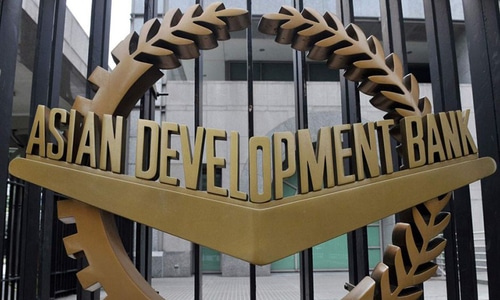The Asian Development Bank (ADB) has committed an additional $80.75 million (Rs 22.47 billion) to the Sindh Emergency Flood Assistance Project (EFAP), aimed at enhancing flood recovery efforts and improving infrastructure resilience in the province.
This new funding brings the total ADB commitment for the project to $220 million (Rs 61.28 billion) to help rebuild areas devastated by the 2022 floods.
Launched in response to one of Pakistan’s worst-ever flood events, the EFAP focuses on restoring essential infrastructure, such as irrigation, drainage, and flood protection systems, while also working to improve climate resilience and disaster preparedness.
Of the additional funds, $54.42 million (Rs 15.15 billion) will go towards civil works and construction, which are a core part of the recovery efforts. To date, $56.83 million (Rs 15.81 billion) has been spent on these civil works.
With this new allocation, the total funding for EFAP now stands at $280.47 million (Rs 78.04 billion), with $135.33 million (Rs 37.64 billion) already disbursed, reflecting a 48.24% disbursement rate. However, only 5.5% of the newly approved tranche has been utilized so far.
As of September 4, 2025, the project’s overall progress stands at 43.9%, although it has faced several challenges, including contractual disputes, material shortages, delays in land acquisition, and occasional social unrest. ADB officials have emphasized the need for better coordination with local authorities to overcome these obstacles and ensure timely implementation.
The additional funds are expected to accelerate the completion of vital infrastructure in flood-prone districts, particularly enhancing irrigation and drainage networks to aid agricultural recovery and reduce the risk of future flooding. ADB officials reaffirmed their commitment to fostering disaster resilience, climate adaptation, and sustainable development in Pakistan.
As the EFAP enters a more intensive implementation phase, stakeholders remain optimistic that the improvements will not only address the damage caused by past floods but also better prepare Sindh for future climate-related challenges.




